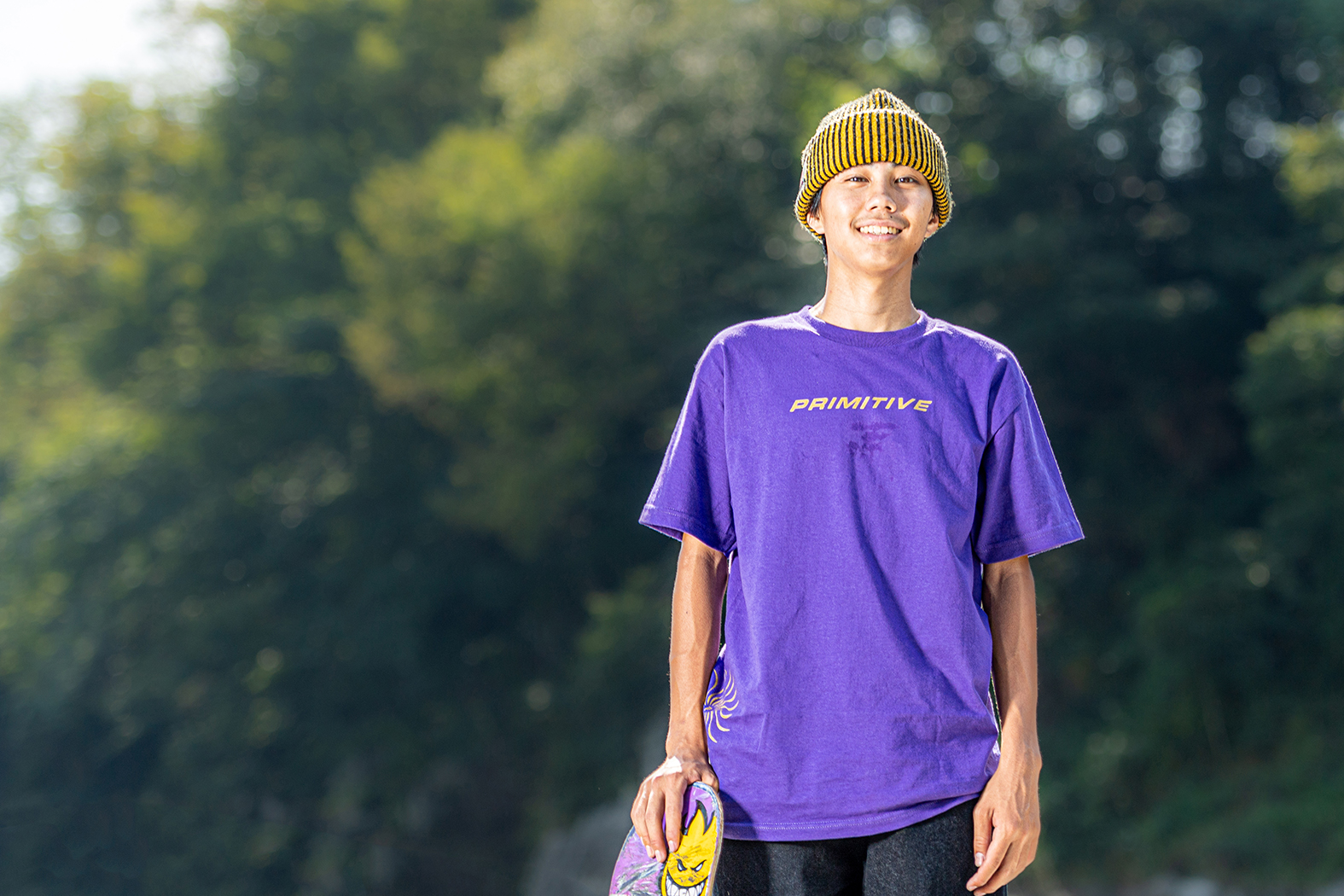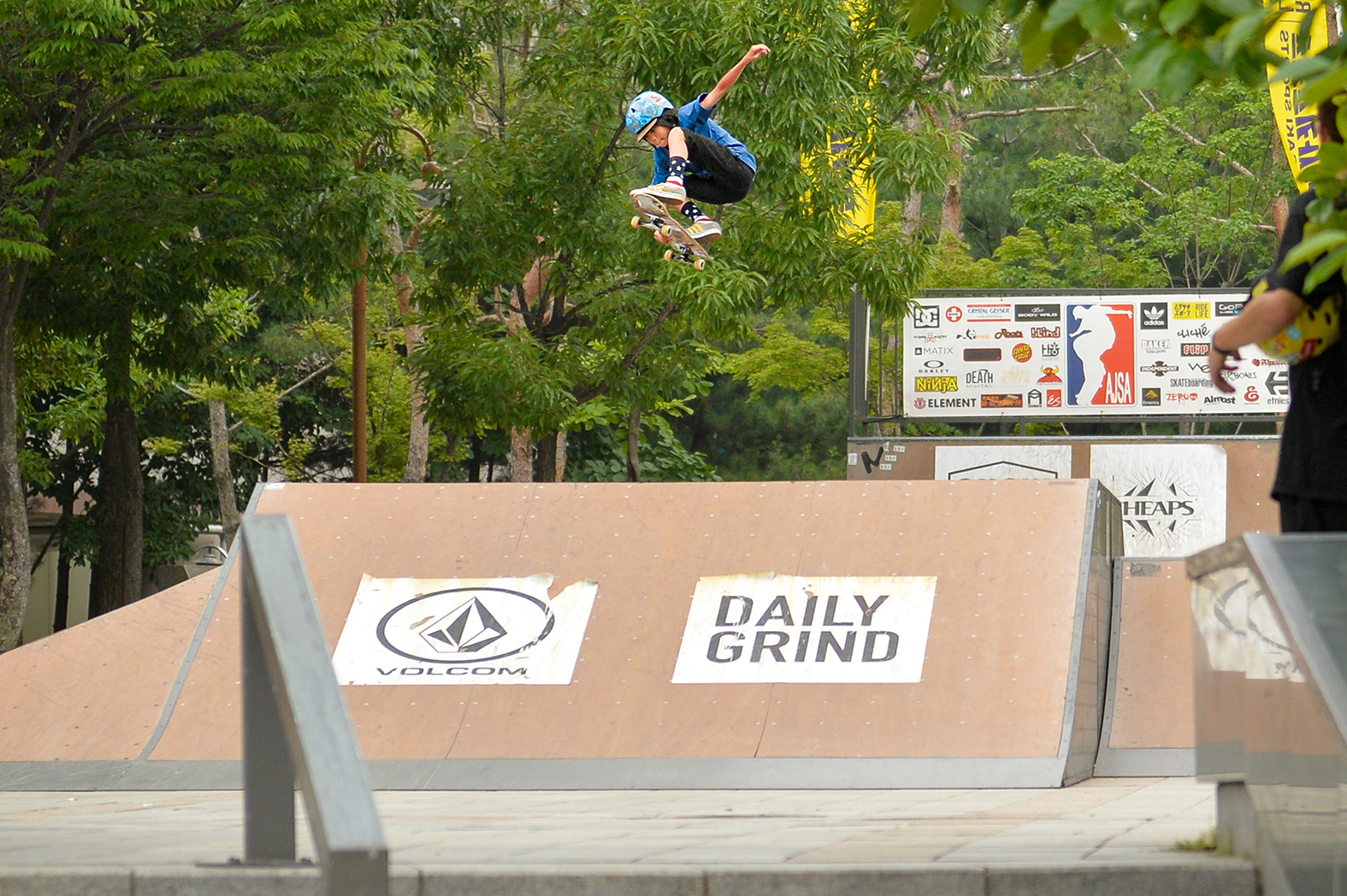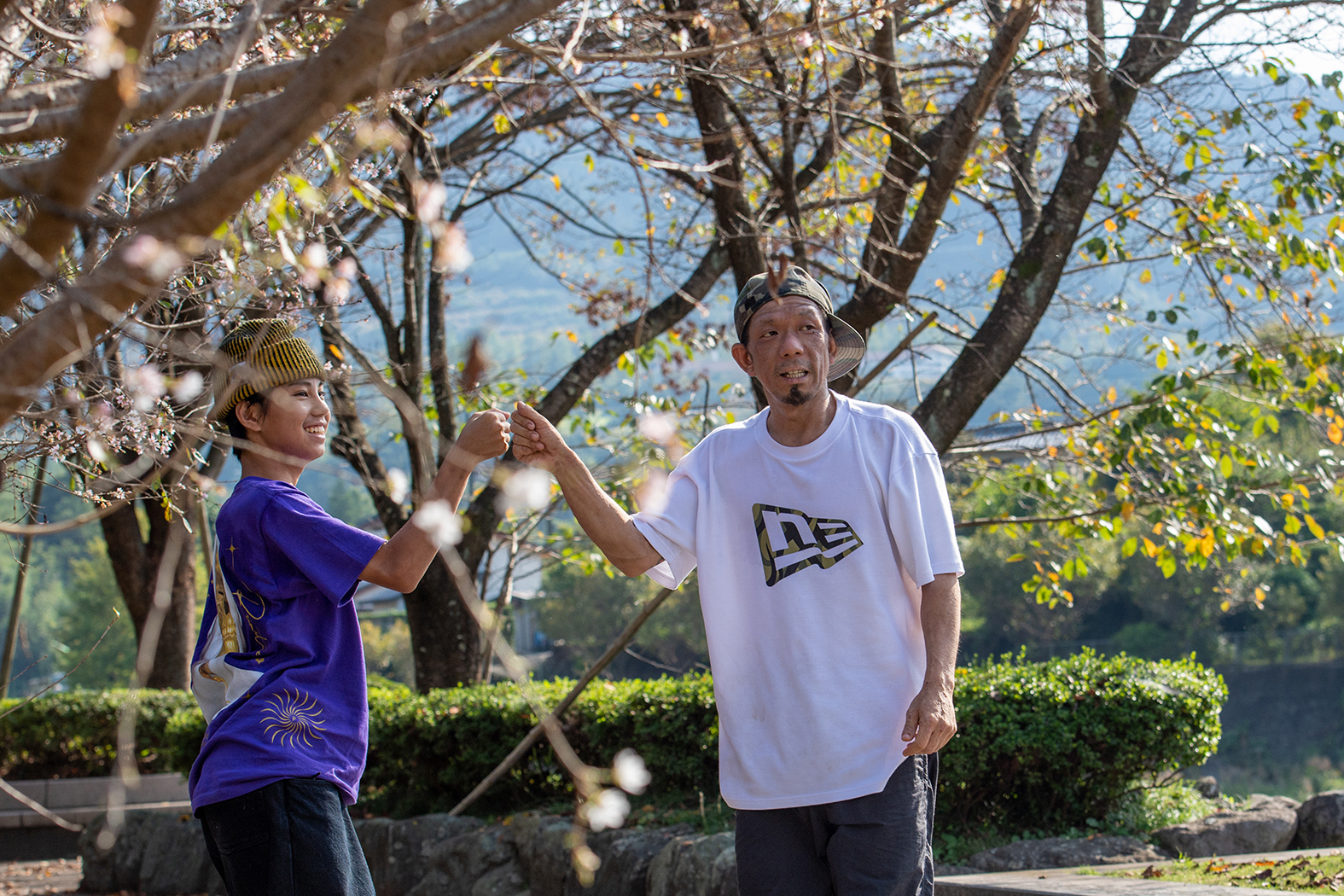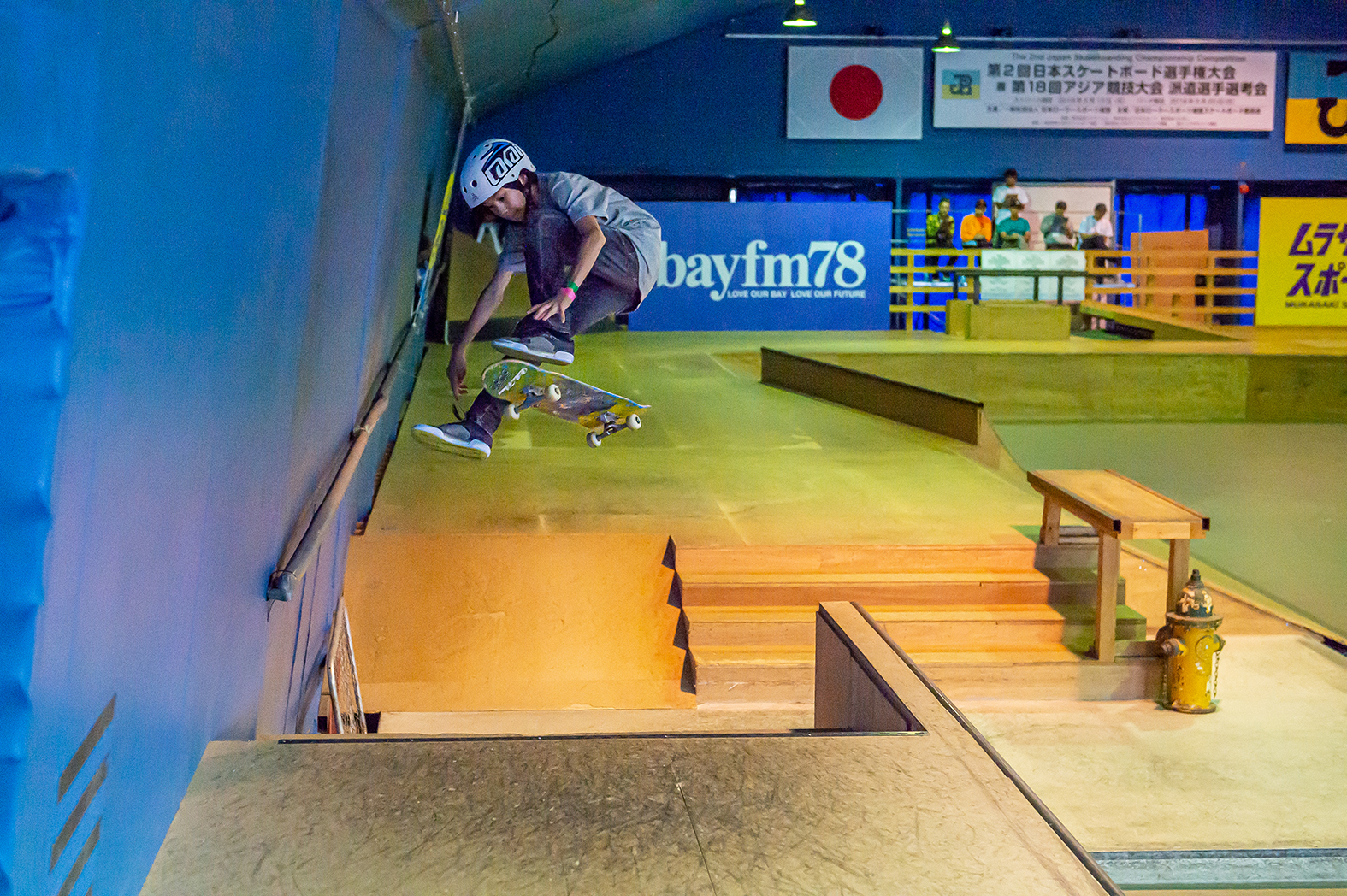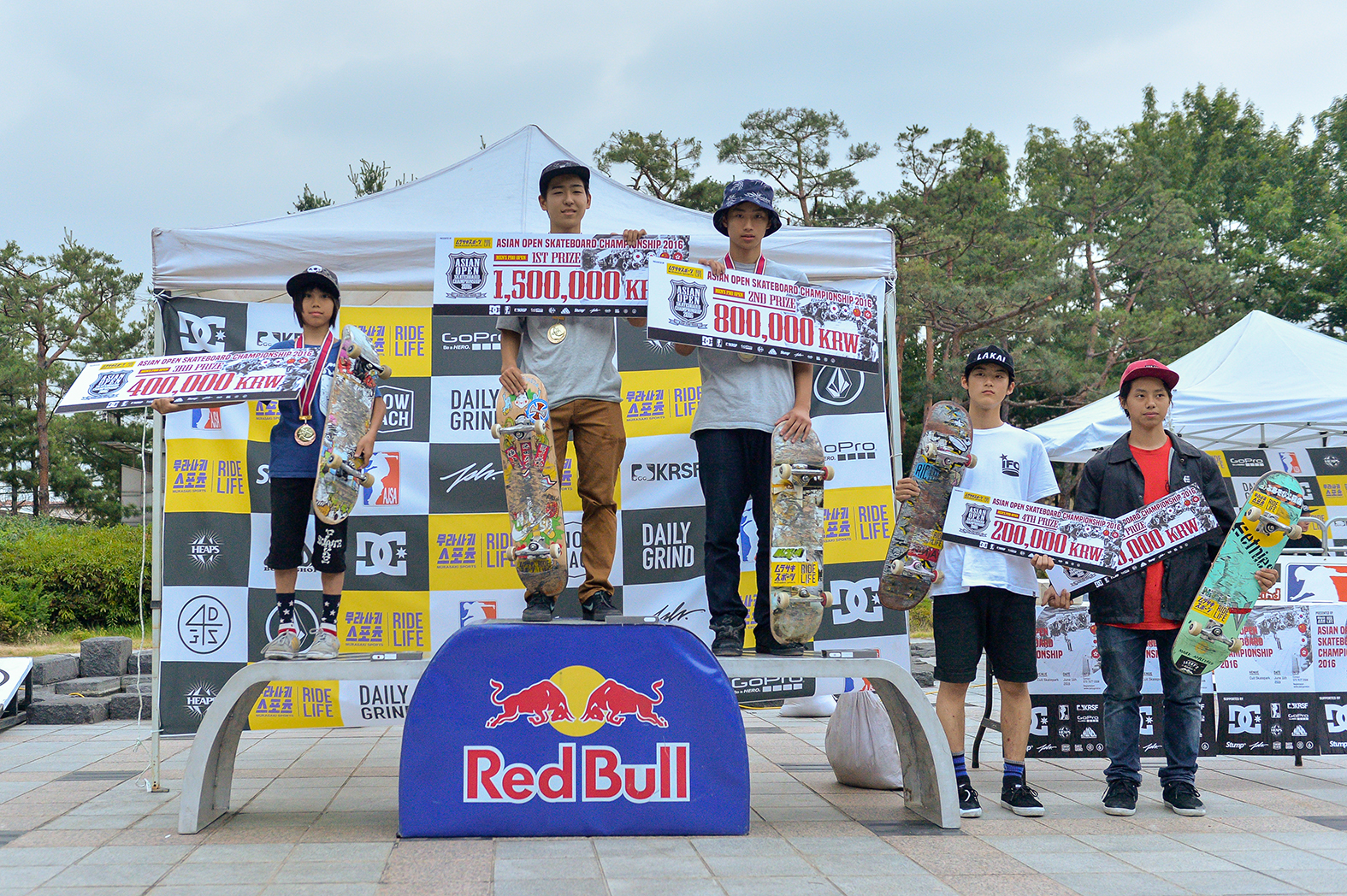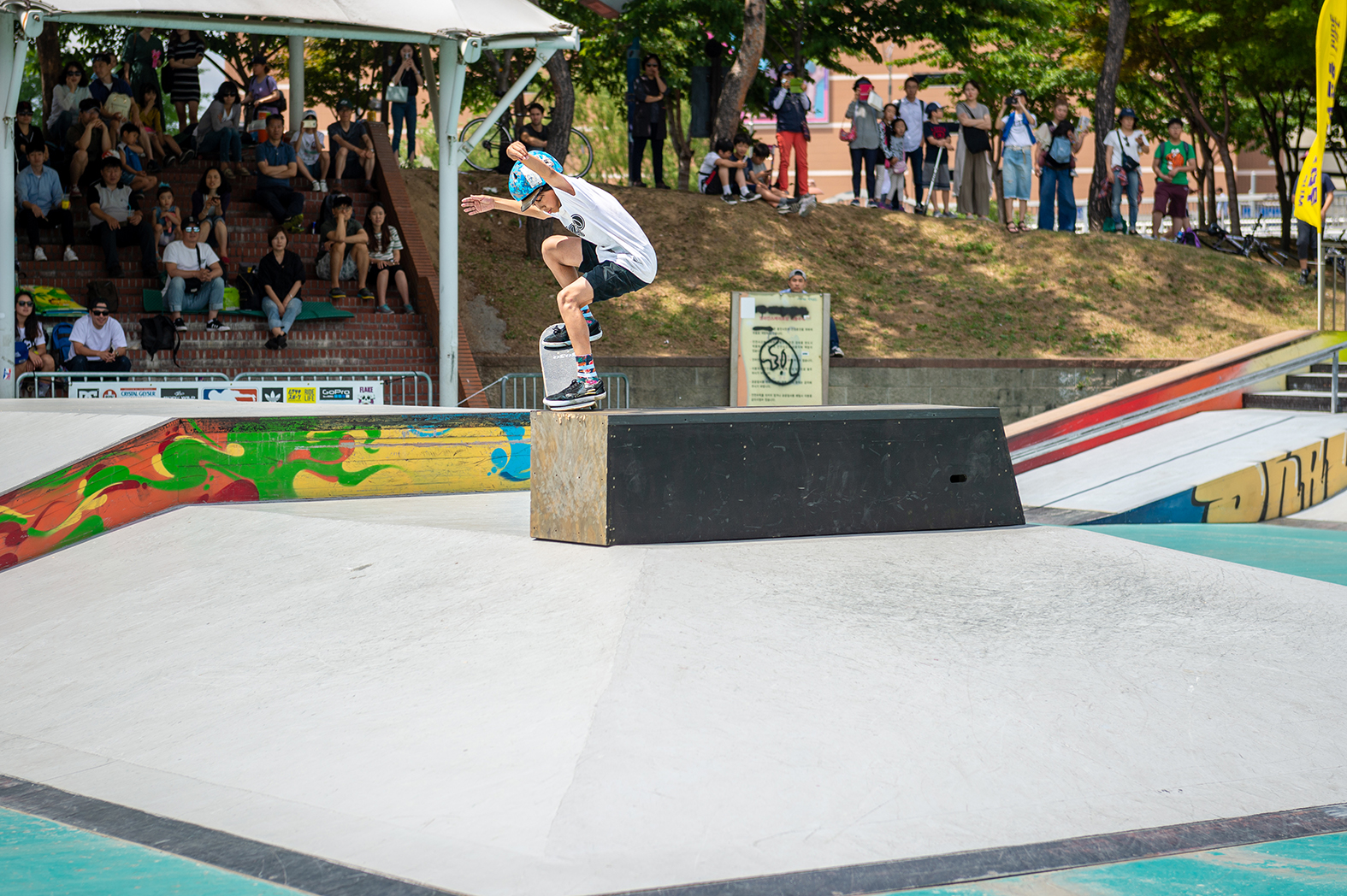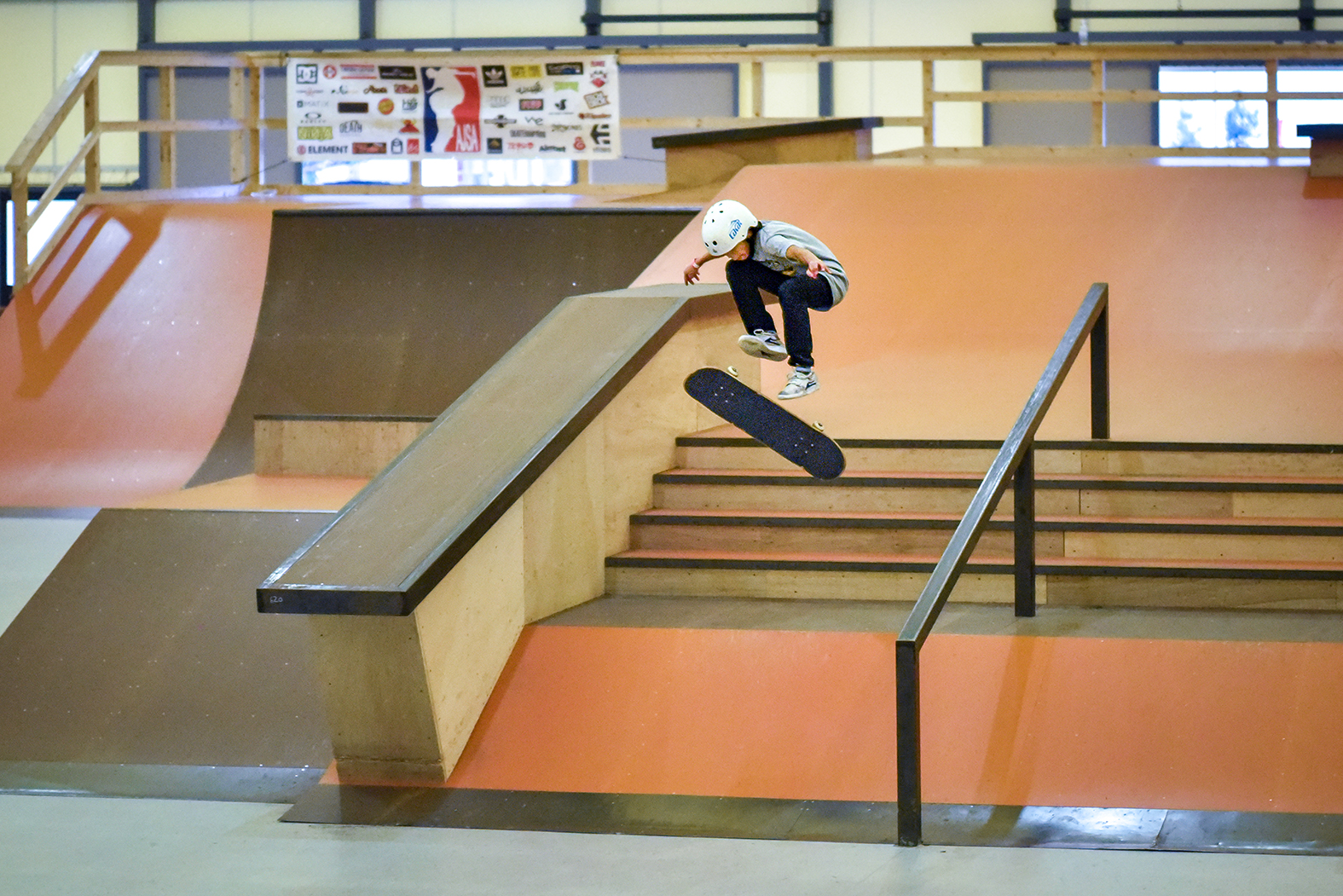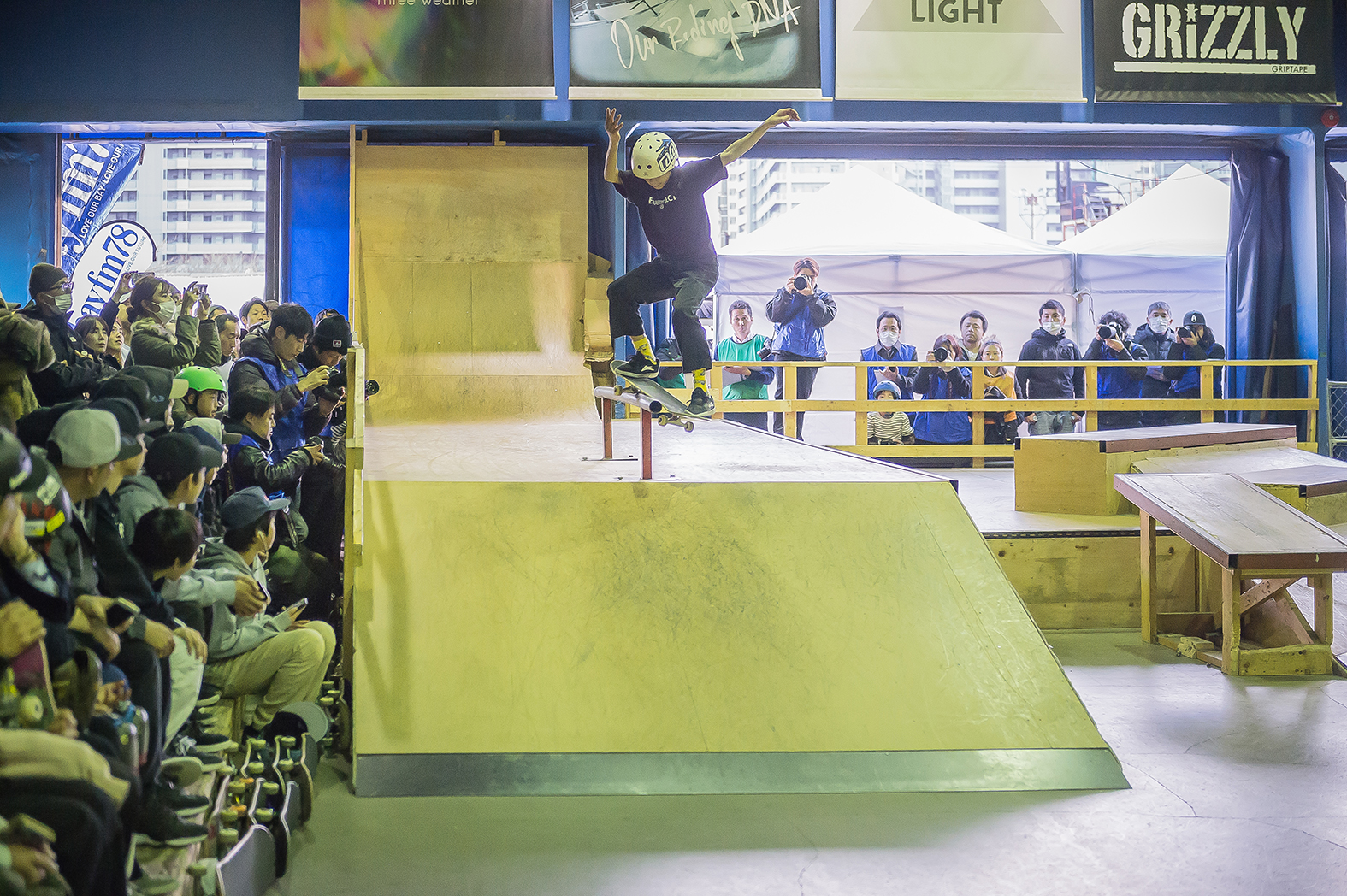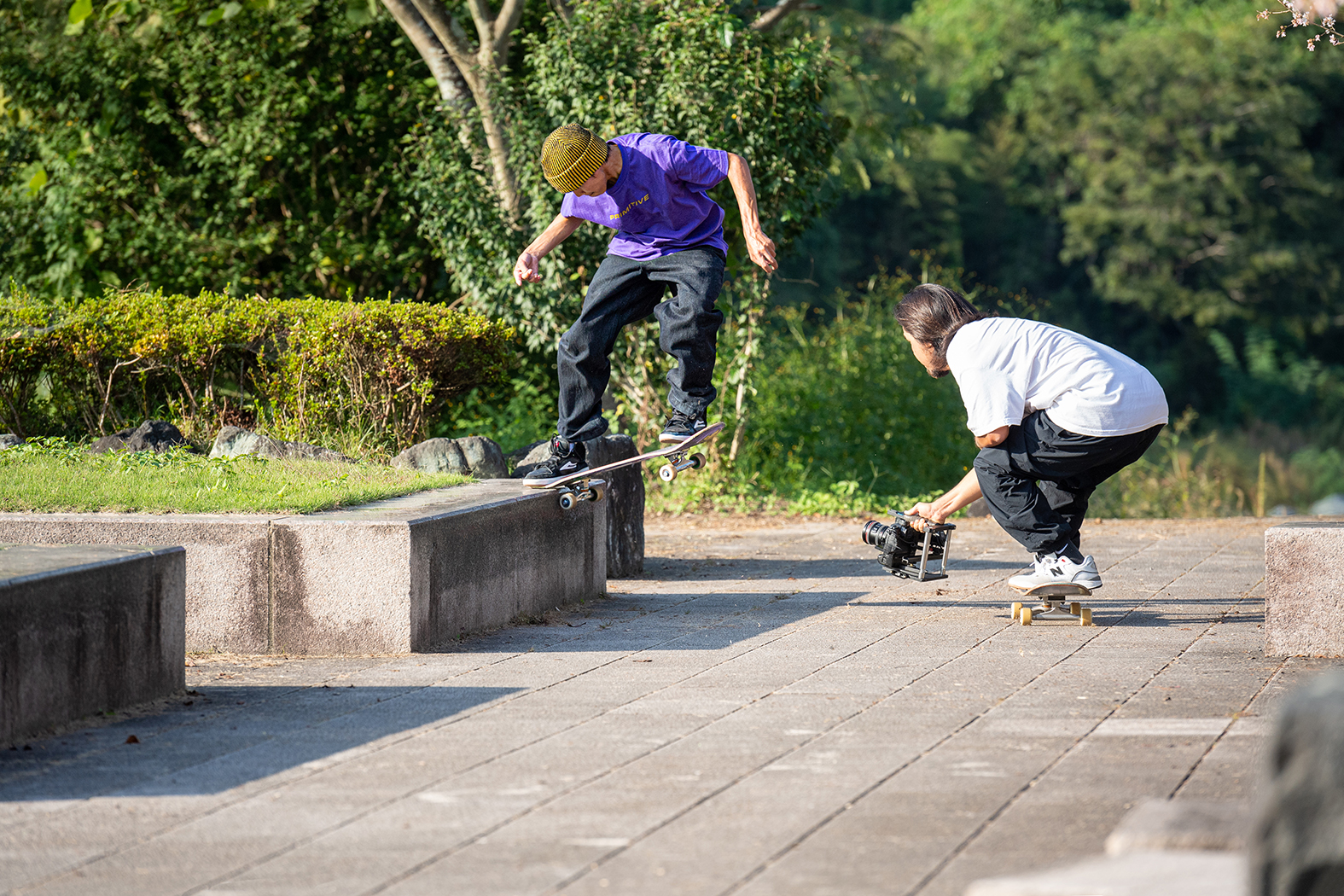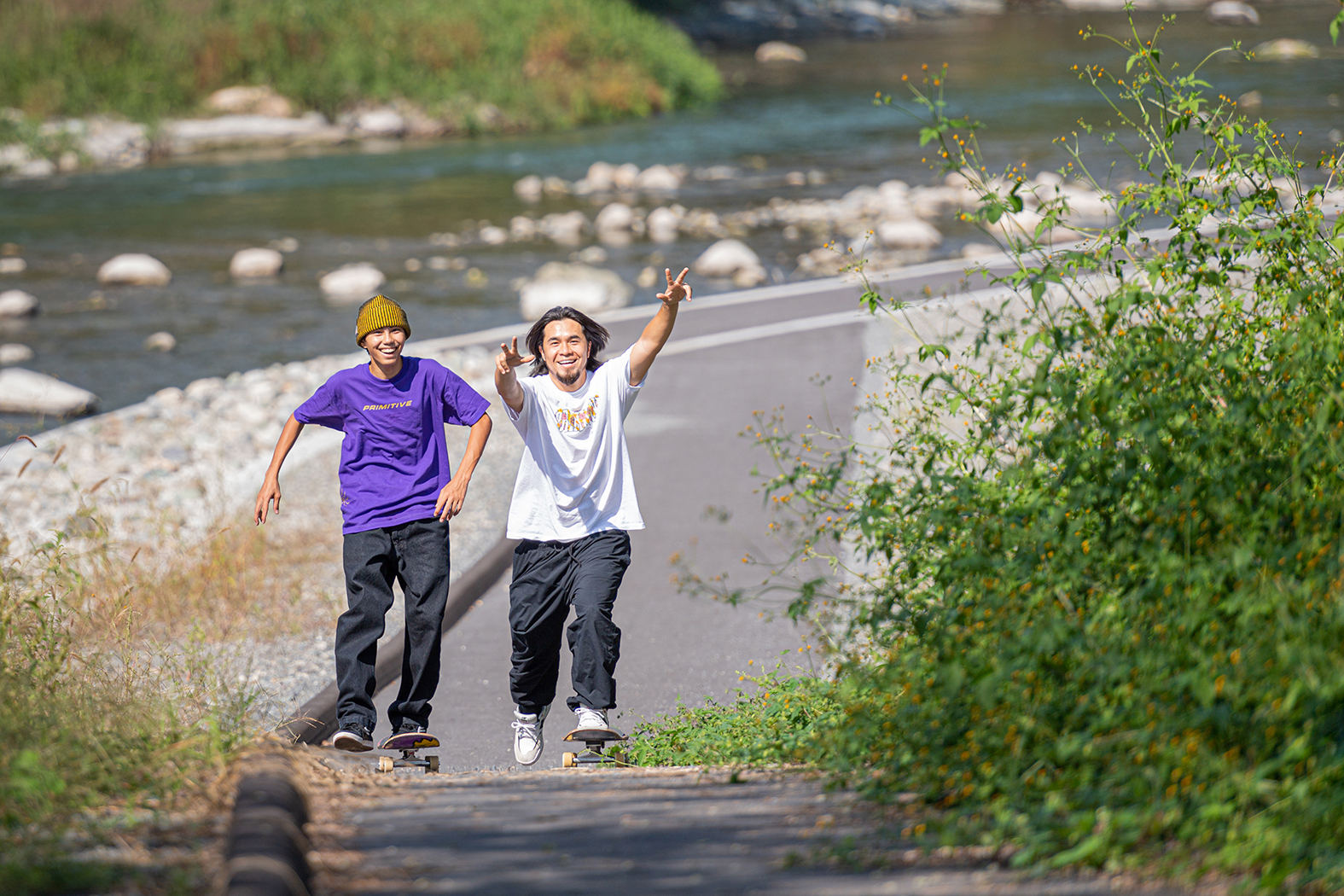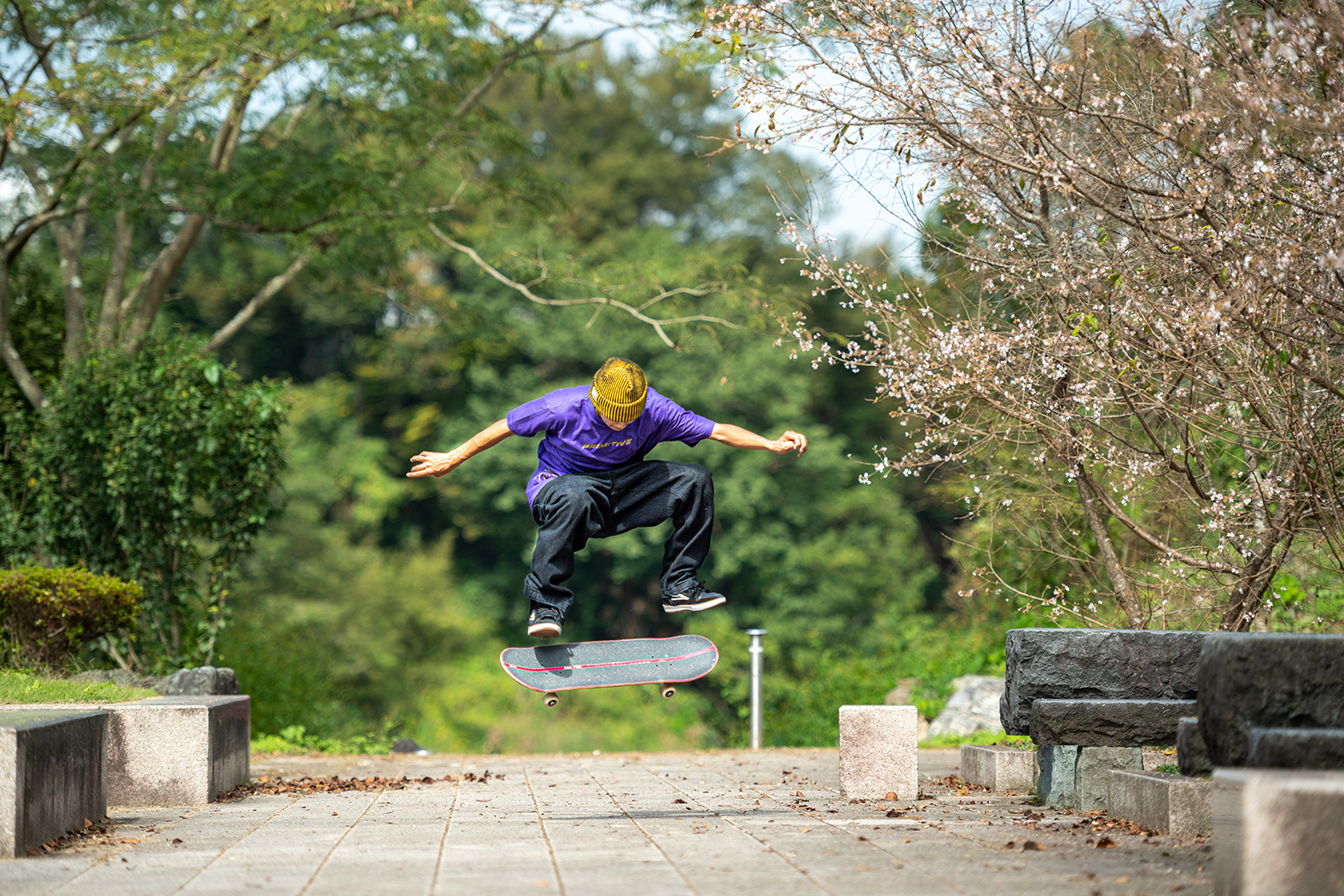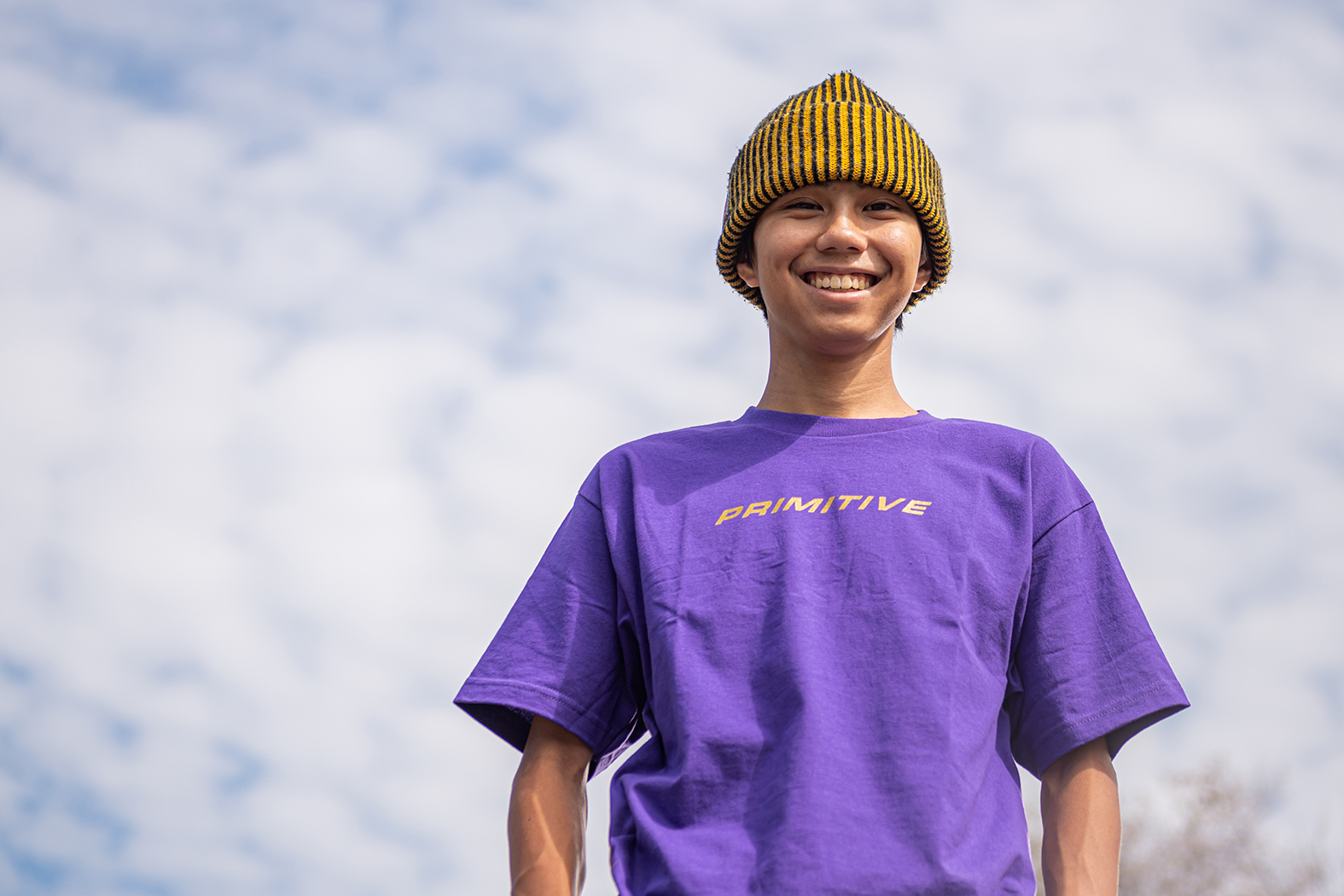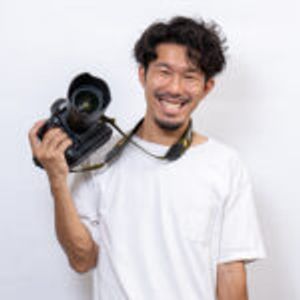A genuine and amiable young man who is innately capable of interacting with people equally—This is probably the most bona fide way to describe the skater, Kyonosuke Yamashita. With his charming character, it’s no surprise that he is getting sponsors from a slew of brands and has thousands of followers on his social media accounts. In this second part of the interview, we unveil his life so far and the game-changing events he had experienced during the coronavirus pandemic.
First encounter with skateboarding in the early years
ーーFor the second part of this interview, I’d like to ask you about your life growing up. First, how did you get into skateboarding?
Kyonosuke Yamashita (Hereinafter Yamashita): It began when I was 3, when I got a small hand skateboard from a claw machine. I had so much fun with it, and later I asked my mom to get me a real skateboard, and she bought me one.
In the beginning, I was just riding it and didn’t try any tricks at all. So anyway, it’s not like I started skating because someone around me, like my dad was a skater. But my dad was in a band playing drums, which probably got me into liking subculture. Also, we had a DVD of LORDS OF DOGTOWN at home, and things like that made me familiar with the skateboard culture. The champion at the last TAMPA AM, Yukito [Aoki] ‘s dad is a dancer, and he’s got a similar background as mine. So most of my contemporaries grew up close to skateboarding, even though their parents weren’t skaters.
ーーWhen you started skating, did you go to a skateboarding school? Also, who were the skaters around you?
Yamashita: I went to Flake* skate school and learned skating at their mini ramp. Go Ueda was my teacher, and Taiho [Tokura] was there, too. Later I went to a school in Jyonanshima with guys like Hasumi Iida. Also, Daiki Ikeda, Sena Watanabe, and their older brothers Daisuke [Ikeda] and Yuto [Watanabe] were there, too. So, these were the guys I skated with when I was little.
Also, I used to go to Komazawa park a lot. Back then, the roads were rough, and there were many skate lessons at parks, and I remember going to skate classes at Mura-pa (Murasaki park) a couple of times.
I was little, so my dad took me to parks far from home, and I biked to places near home. Komazawa [park] was probably the closest park from where I lived, so I went there the most.
Mr.Ura (Yuzuru Uramoto) and Mr. [Masamitsu] Akachi and Mr.Junnosuke [Yonesaka] taught me a lot. Mr.Junnosuke is now my Primitive teammate, and we skate a lot together. I feel like we have an interesting bond between us.
*Flake is an apparel brand for youth that presents the true street culture paying homage to the west-coast US skate, surf, rock, and art culture. Flake established a skateboarding school where kids graduate the team as they graduate elementary school. Graduates of the school includes, Kaito Sagawa, Ryo Sagawa, Yuto Watanabe, Mana Sasaki, and many other pro skaters today and girl champions such as Sayaka Iino and Kaya Isa.
A road from the first-ever contest to being selected as Tokyo Olympics’ High-Performance Program player
ーーAt what age and how long after you started skateboarding did you join skate contests for the first time?
Yamashita: The first one was FLAKE CUP‘s mini ramp contest, and I was in my first or second year of elementary school. But it was a complete loss…. I was so disappointed, and after that, I practiced mini ramp so much at Komazawa park. Now that I think back, I was a competitive kid who hated to lose.
I’m not so sure, but I think the first time I won a prize was at a mini ramp contest at Mura-pa hosted by DC. I was the fifth place. And my first street contest was the 3rd AJSA (ALL JAPAN SKATEBOARD ASSOCIATION) Amateur Circuit in 2013. ‘Till this contest, I hated street and did ramps all the time, but people around me encouraged me to sign up for the contest, so I did after many practices, and as a result, I got fourteenth place and went to the finals. Although I came in last at the finals, I was incredibly happy and started liking street more. But with street, my body needed to be more developed, and I needed more leg strength to go on the obstacles, so when I was younger, I kept going for the ramps even at street contests.
ーーSo at what age did you start winning contests? Tell me about the first time you won a prize.
Yamashita: The first time I won first place was at the 1st AJSA Kanto Region Amateur Circuit in 2016 at Umikaze park. It took about two and half years since I first signed in for a contest. Two months later, I got third place at AJSA Pro Tour/Asian Open in Cult Park Korea. But I got lucky because it was a pro/am open, and it got canceled twice during the competition because it started raining, so the finals didn’t happen, and the ranking was from the preliminary round. Though, this was the first major competition where I got to stand on a podium. Also, for this Asian open, there were dozens of skaters traveling together from Japan to Korea. So it was like a school trip, and it was so much fun. The competition hasn’t been held for the past couple of years, so I hope they do it again.
ーーAnd since then, you started winning more often at contests, but why is that?
Yamashita: I think it’s simply because my body is getting bigger. But I was able to become a pro at AJSA because I got fifth place at the 2018 AXIS Pro/Am Open, and I actually didn’t even pass the preliminary match for the All Japan Amateur Championship [laughs].
But that same year, I won a couple of prizes, became third on the annual ranking, and became second in 2019. Back then, I was desperate like, “No matter what, I gotta win at contests!” In other words, I was skating hard only to win contests. So I take these results as rewards for my efforts.
ーーLater in 2019, after you’ve won a prize at the All Japan Championship, you were selected as a High Performance Program player for the Tokyo Olympics. So, were you then aiming for the Olympics?
Yamashita: Yes. To be honest, before Covid, I was skating at contests mainly to get in the Olympics. But, you know, I didn’t do good at all [laughs]. Maybe because the place had a different vibe than usual, I couldn’t skate like I usually do, and even though I did well in Japan, I couldn’t do well in other countries.
For AJSA or domestic contests, I get to practice a lot on-site in advance, but at competitions abroad, I only had about two days to practice on-site, and the time was restricted, so I couldn’t practice as much as I wanted. As a result, I had to drop my level and couldn’t do well with the tricks. I wasn’t tapping into the vibe of the place.
It would’ve been cool if I had still won and were capable of doing more complex tricks, but back then, I didn’t have that many skills and couldn’t get creative enough to come up with a good strategy, so there wasn’t much I could do.
Changes occurred from the pandemic
ーーAnd subsequently, the novel coronavirus pandemic started. While there weren’t any contests happening for a long time, did your surroundings change?
Yamashita: Yes, absolutely. Since the pandemic, I shifted my focus to making my video parts. I was able to make a smooth transition, so when the contests got canceled, I wasn’t like, “What am I supposed to do!?” And shout out to Luis, who’s a YouTuber and a filmer who used to live in Japan, for hitting me up and taking me out to shoot during the phase.
I went to many different places like Osaka and Nagoya with Luis to shoot my parts, which then, on the road, I met Naoya Morohashi at this event called TIGHTBOOTH. We asked Naoya, “Let’s do a shoot together!” And this immediately led us to do a full part together and skate together for the video, LENZ 3.
Also, it was right when I signed to Primitive, and the filmer for Primitive was Eric Iwakura, who had also lived in Japan before. In autumn, he happened to be back in Japan, so we skated a lot together. The picture in this interview is from then. By the way, next year, I’m releasing a video from Primitive, so stay tuned.
Looking back, if I didn’t have my Erased part, I probably wouldn’t have become a Primitive am. Also, I’m not sure if we would have been able to make my Erased part great as it is if the pandemic didn’t happen. They may be coincidences, but everything came along in perfect timing.
ーーWere there any other changes happening in your living? For example, you started watching more skate videos.
Yamashita: That’s true. I started watching skate videos quite recently when I was in my second year or third year of middle school. Before that, I’ve watched them once in a while, and not that often. But I remember clearly the first video I’ve ever watched was TRUE by Plan B, which my dad got me for my birthday present. Especially, Trent McLung‘s part was so remarkable as he did the ledge, handrails, manual, stairs, switch, and everything so smoothly. He’s a true all-rounder, and he inspired me a lot.
ーーWhat is your stance on skate contests now compared to before?
Yamashita: Before, I was only thinking about contests, so in that sense, my level of passion for contests has probably dwindled. But my passion towards skateboarding has never changed. I’m just more into making video parts now, and I have more work to do. Obviously, I’ll be joining contests whenever I can, and if I do, I want to make sure I win. It’s just that, ultimately, winning contests and performing well for the videos are two separate things, and I think it’s really tough to do both at the same time. So, I really respect [Yuto] Horigome for doing a great job on both these things, and he motivates me to work harder.
ーーSo you’ve known Horigome from before and seen each other at contests?
Yamashita: Actually, I never see Horigome when we’re in Japan. When Horigome started skating at TAMPA and SLS, I started skating at domestic pro competitions, so we just missed each other.
We only saw each other pre-covid at DEW TOUR and SLS as we were both chosen High Performance Program players for the Tokyo Olympics. But even then, Horigome was from the semi-final, and I lost before that, so we saw each other on-site but couldn’t skate on the same stage as competitors.
But we got to hang out and skate together a couple of times in LA and had a great time together. But as he’s so successful and we’ve never competed with each other at contests, I kind of get nervous when I see him [laughs].
The contemporaries and the Japanese skate scene
ーーJapanese skaters from your generation are outstanding in contests and streets. Are there any young riders who draw your attention? Who are you good friends with?
Yamashita: I think Shin (Shintaro Hongo) is insanely talented. His name was in the header of Thrasher, he was featured on editorial interviews, and he’s released some sick parts, too. So he amazes me with all these things.
And I’m good friends with Daiki [Ikeda]. I’ve known him for a long time, and we always skate together at Shinyokohama. I also think it’s awesome how he recently started skating with the Toy Machine Skateboards riders in the US.
Great contemporaries and guys close to my age motivate me, and they also make me feel jealous, which is good because it makes me practice harder. So I hope we all get to a higher level with this reciprocity among us.
Also, I think Rio Morishige is awesome, and his skating is world-class. He’s also a fun guy, so I’m sure people in the States will love him, too.
I’ve been skating a lot more recently with the TIGHTBOOTH PRODUCTION team, and they surprise me a lot, like, “Wait, they’re going in there with that approach!?” “There’s a rail here, but man, they just don’t give!” They just go for the places where people usually don’t skate in. They’re on a completely different scale.
ーーIn Japan, through events like the Olympics, skateboarding is becoming huge, but at the same time, there’s some controversy arising with skaters skating in the streets. What are your thoughts on this?
Yamashita: I’m not so affected by it, and I’m skating as I’ve always been, but I get a little shy when people look at me simply pushing on the board, like, “Oh look, he’s skating!” [laughs]. But I’m genuinely happy with the fact that more kids come up to me these days, asking me like, “Can I get a picture with you?” Or “You’re Kyonosuke, right!?”
ーーFinally, as a widely admired skater, what advice would you give to the kids aspiring to be a skater like you? Also, please tell me your thoughts on the future of the Japanese skate scene.
Yamashita: I think it’s best to just have fun with it. Not just with skateboarding but with other things in general, you can’t continue things that aren’t fun. And what I want to say to Japan is that I’d be happy if the country could be more accepting of skateboarding. If people stop being so biased with skateboarding and other things in general, I think the society will become a better place.
Thank you so much for interviewing me today!
Kyonosuke Yamashita
Kyonosuke Yamashita is a skateboarder born on May 23, 2004, in Shinagawa, Tokyo. He is a new generational and globally established star with 369K followers on Instagram (as of January 2022) and one of the skaters representing the new era. With his execution of intricate moves and smooth technical tricks, he is called a Japanese Ninja from an overseas audience and is widely admired for his loving character. His sponsor brands are Primitive, Lakai, Erased, G-SHOCK, Nothing Special, Spitfire, MOB GRIP, KNTHW, and FIFTY FIFTY.
Instagram:@_kyonosuke_
Photography Yoshio Yoshida

